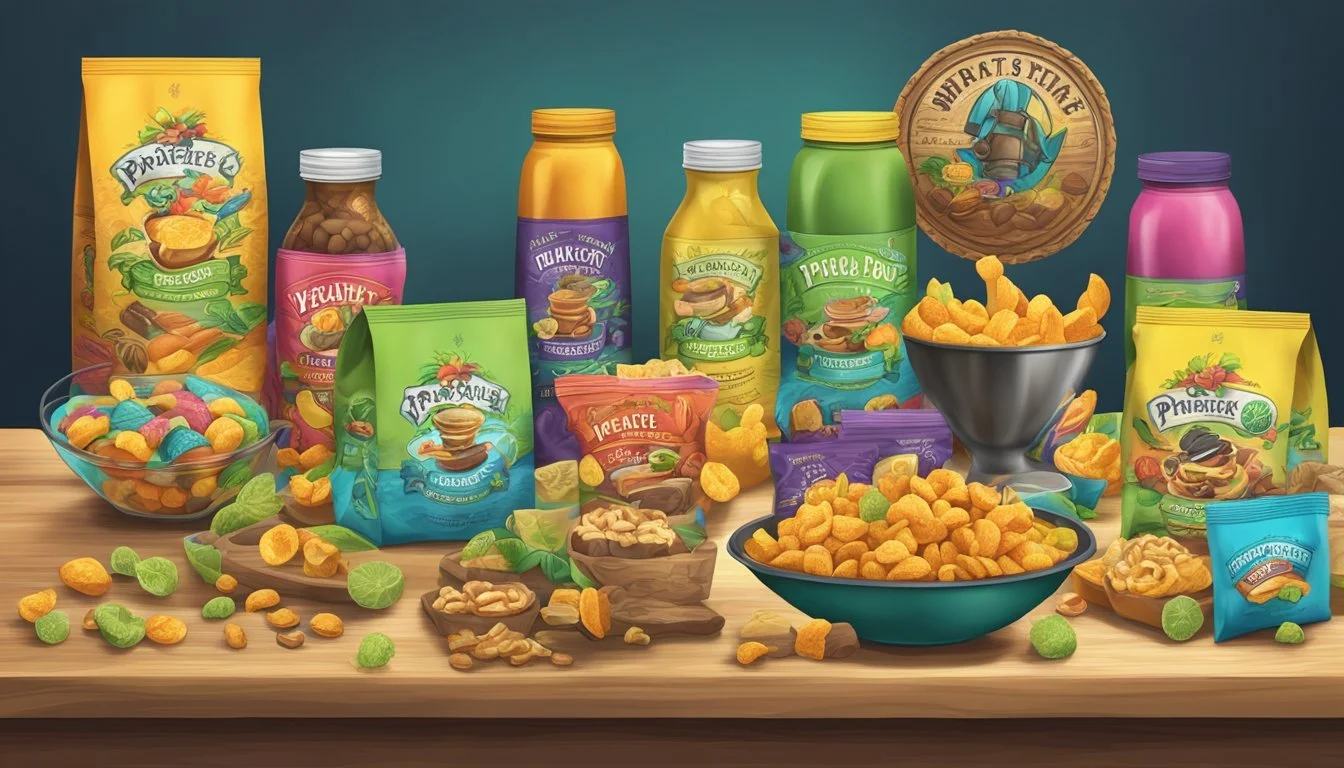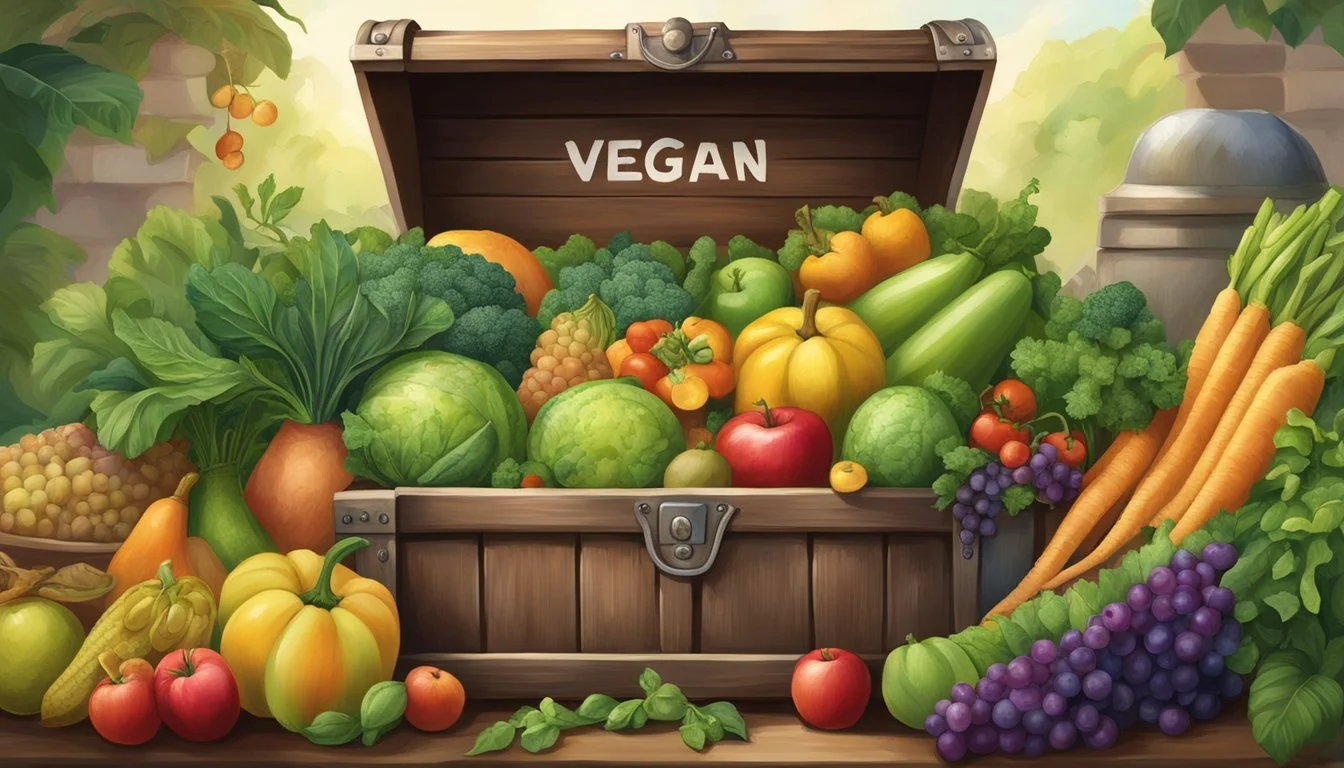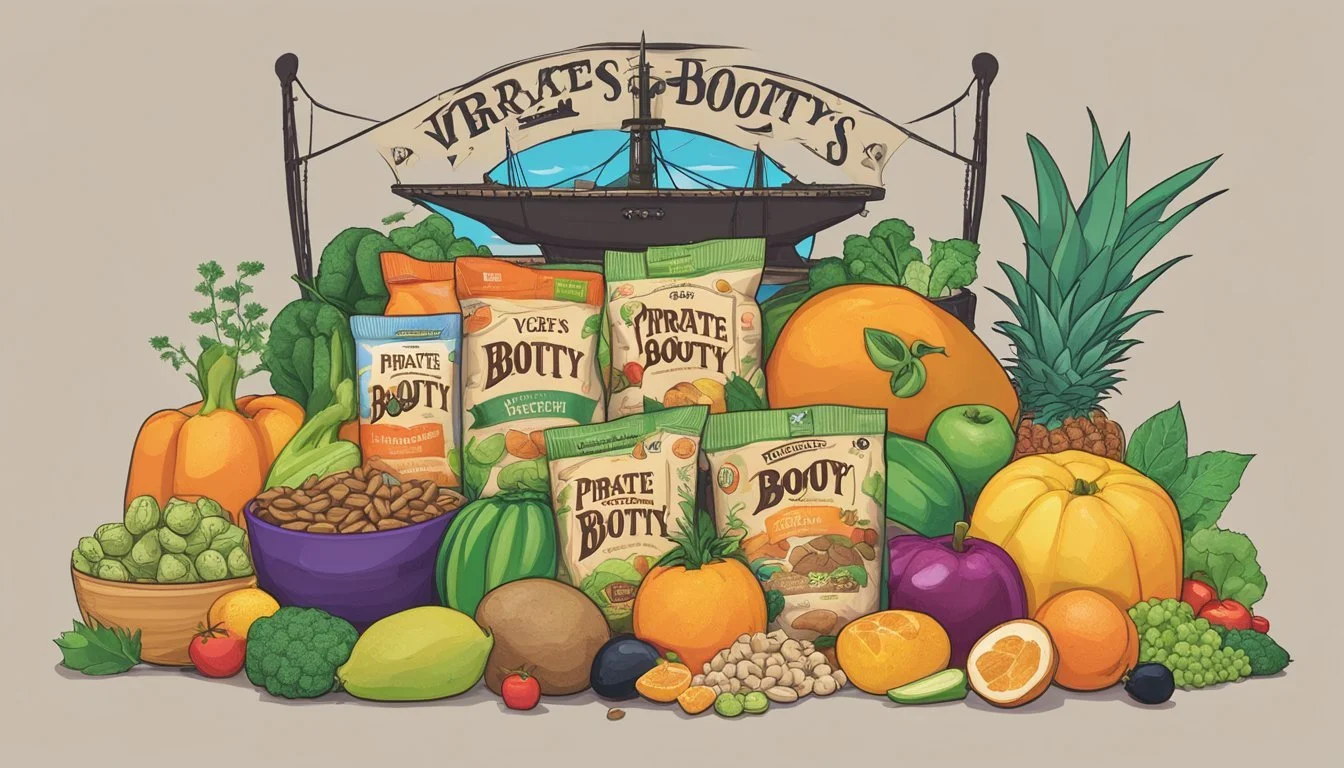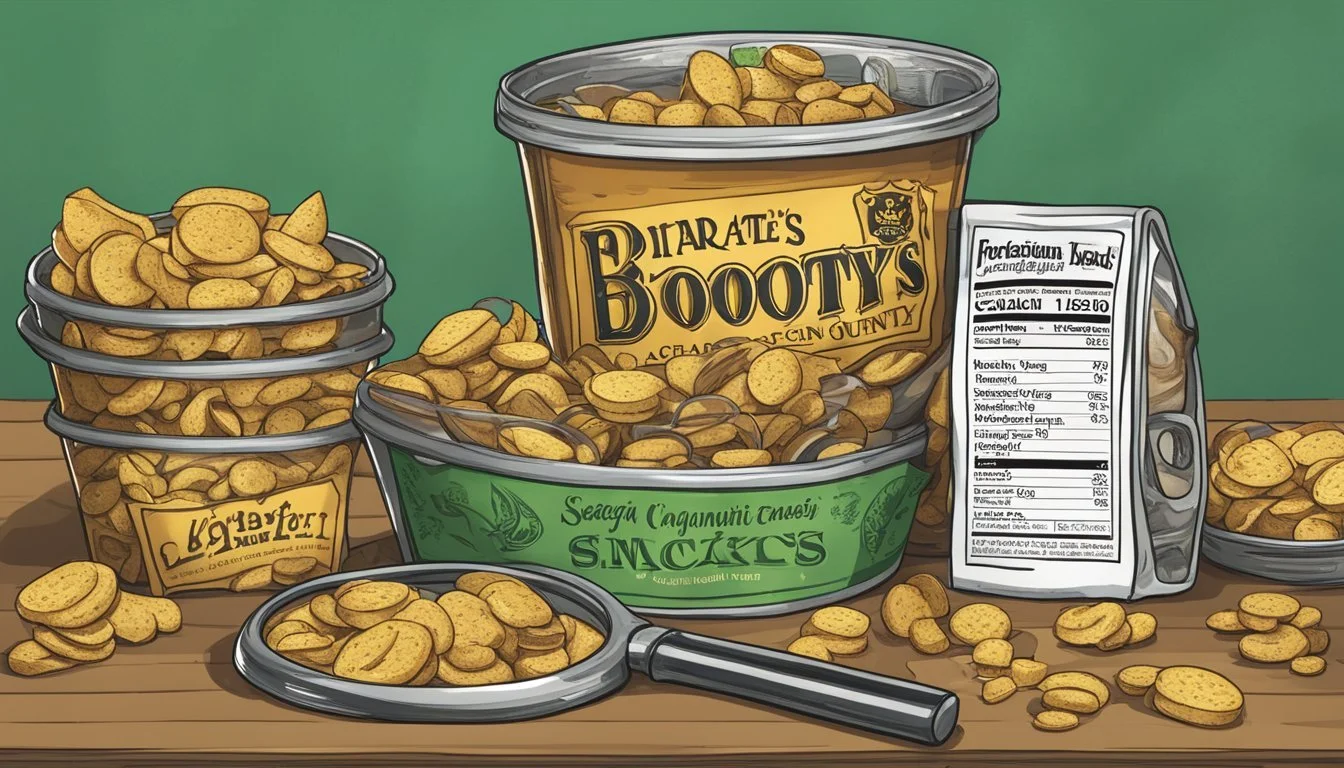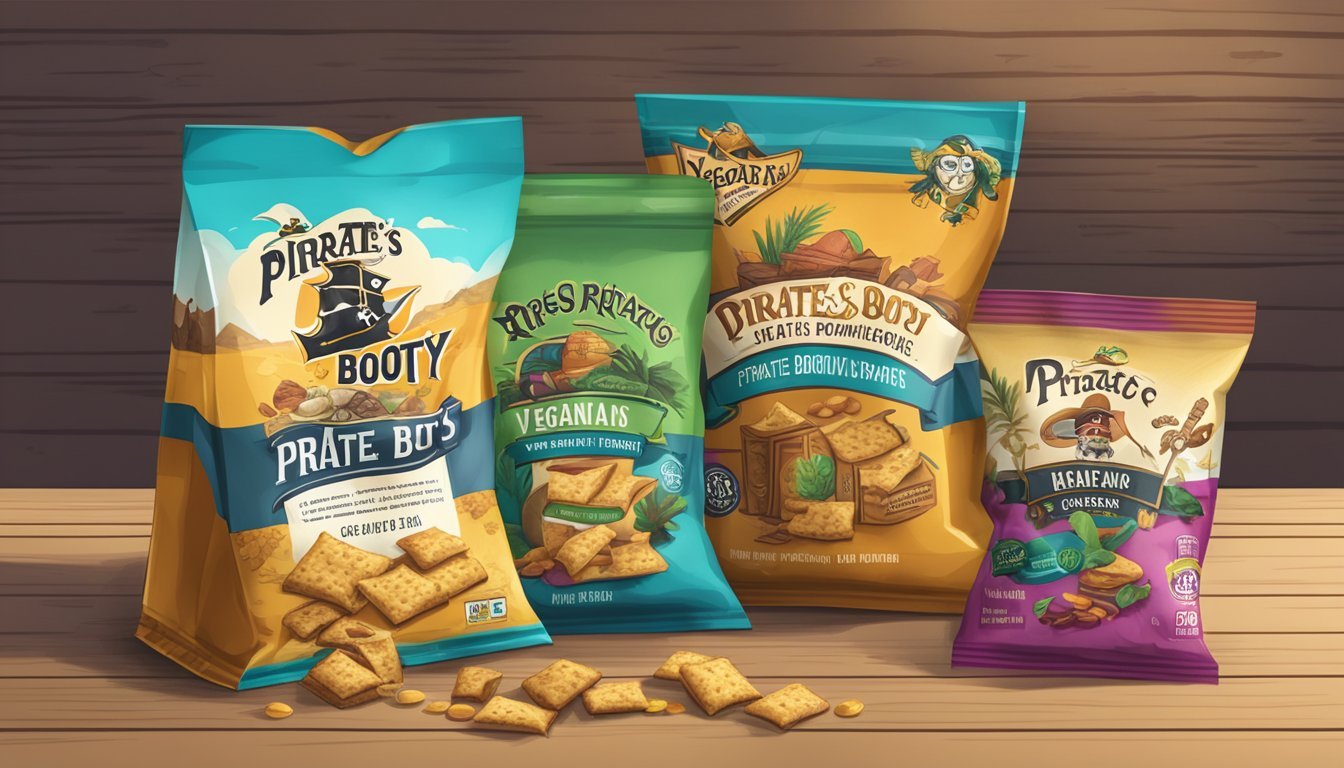Are Pirate's Booty Vegan?
Unveiling the Snack's Ingredients
Pirate's Booty snacks, particularly known for their aged white cheddar puffs, have amassed a dedicated following for their satisfying crunch and flavorful taste. This brand, created in 1987, is often recognized for its fun packaging and marketed as a healthier alternative to traditional snacks. Yet, it's important to clarify that not all Pirate's Booty products are vegan. The presence of cheese in their signature cheddar puffs places them outside the vegan category, as traditional cheese is derived from animal milk.
The growing vegan community, which avoids all animal products for ethical, environmental, or health reasons, often seeks clarity on which snacks fit their lifestyle. While Pirate's Booty's original products contain dairy, alternative vegan-friendly snacks are offered by the same creator – indicative of a growing trend to cater to a wider range of dietary preferences. These alternatives mimic the cheese flavor without using any animal-derived ingredients, opening up options for those pursuing a plant-based diet.
In this context, consumers examining the vegan status of Pirate's Booty should look closely at product labels. It is essential to distinguish between the original recipes that contain dairy and newer, potentially vegan formulations. Knowledge of ingredients and an understanding of which additives are plant-based are key to making informed choices about consuming Pirate's Booty snacks while adhering to a vegan diet.
Pirate's Booty Product Overview
Pirate's Booty is a popular snack known for its cheese puffs and distinctive branding. The product line is diverse, featuring a variety of flavors and formulations that cater to different dietary preferences and tastes.
Brand History
Pirate's Booty was created in 1987 by Robert Ehrlich, who was inspired to produce a tasty, yet healthier, snack alternative. The brand has grown under Robert's American Gourmet to become a familiar name in the snack aisle, with its Aged White Cheddar variety becoming a hallmark of the brand's commitment to flavor. The branding often plays upon a pirate theme which accentuates the playful nature of the snack.
Product Varieties
The company offers multiple product varieties, including:
Aged White Cheddar: Puffed rice and corn blended with aged white cheddar cheese.
Veggie Booty: A version that includes spinach and kale for a vegetable twist on the traditional snack.
Organic options are also available, catering to those who prefer snacks made with organically sourced ingredients. Pirate's Booty snacks, particularly the cheese puffs, are known for their light, airy texture and are baked, not fried, offering a snack that many consider to be a better choice compared to traditional fried snack foods.
Vegan Credentials
When assessing if Pirate's Booty is suitable for vegans, one must consider the nature of ingredients as well as the presence of vegan certifications or labels on the packaging.
Ingredients Analysis
Pirate's Booty snacks are primarily known for their aged white cheddar flavor, which traditionally includes dairy. The original Pirate's Booty cheddar puffs contain real cheddar cheese, disqualifying them from being vegan. However, for those seeking a dairy-free option, the same creator behind Pirate's Booty also founded Vegan Rob's, which produces a wide array of vegan snacks. These alternatives use plant-based ingredients to replicate the cheese flavor without the usage of animal products. The Earth Balance Vegan Aged White Cheddar Flavor Puffs, mentioned in search results, are an example of a snack made with whole grain sorghum flour and are entirely vegan.
Certification and Labeling
As far as certification and labeling are concerned, vegan products are often accompanied by labels indicating they are 'Vegan' or 'Suitable for Vegans'. For Pirate's Booty, the presence of real cheddar cheese should mean the absence of such labels. Conversely, Vegan Rob's products, which are designed to complement a vegan diet, should have appropriate labeling. It is important for consumers to always check packaging for any label indicated to ensure that the product aligns with vegan dietary restrictions.
Nutrition and Health Considerations
When examining Pirate's Booty in terms of nutrition and health considerations, one must take into account its caloric content and macronutrient balance. This snack offers a profile which is gluten-free, with particular emphasis on its calorie, fat, carbohydrate, and protein contents.
Caloric Content
Pirate's Booty provides 140 calories per one ounce serving. This count is crucial for individuals tracking their daily caloric intake as part of a balanced diet or for those considering weight management.
Macronutrient Balance
The macronutrient distribution in Pirate's Booty consists of:
Fat: 6 grams, with 1 gram as saturated fat
Carbohydrates: 18 grams
Sugars: 1 gram
Fiber: 1 gram
Protein: 2 grams
This snack contains 190 mg of sodium per serving, which should be considered in the context of a person's daily sodium allowance. Its formulation is gluten-free, making it a suitable option for individuals with gluten sensitivities. The balance of macronutrients underscores its role as a potentially health-conscious option for snacking.
Safety and Quality Concerns
In assessing the safety and quality concerns for Pirate's Booty products, it's critical to consider the brand's history regarding recalls and the established quality control measures in place.
Past Recalls
B&G Foods, the company that owns Pirate's Booty, has experienced recalls in the past. Although not directly related to Pirate's Booty, recall instances in B&G Foods' history often lead to increased scrutiny and improved safety protocols across all their product lines. For example, a recall could stem from concerns of contamination, such as salmonella, which would pose serious health risks to consumers. When a recall occurs, the compromised products are promptly removed from shelves to ensure consumer safety.
Quality Control Measures
B&G Foods maintains stringent quality control measures to prevent safety hazards and ensure the integrity of their products, including Pirate's Booty. These measures include:
Rigorous testing for contaminants
Regular audits and inspections of manufacturing facilities
Safety protocols to manage and track every batch of products
Comprehensive training for employees to uphold high-quality standards
These steps are in place to minimize the chances of a product recall and to protect consumers from any potential safety compromise.
Market Presence and Consumer Perceptions
In assessing Pirate's Booty's status in the snack market, one observes a branding strategy that stands out amongst its counterparts, and a product that has navigated the competitive landscape effectively since its inception.
Brand Identity and Differentiation
Pirate's Booty has carved a niche in the snack marketplace with its aged white cheddar puffs, originally introduced in 1987. The branding approach emphasizes the snack's unique taste profile and often associates it with a healthier, organic choice for consumers. Over the years, the product's image has been further reinforced by its acquisition by B&G Foods, Inc. in 2013 for $195 million, and later by Hershey Co. in 2017 for $420 million, signifying the brand's substantial market penetration and value.
Competitive Landscape
The snack industry is crowded, with competitors constantly releasing new products to capture the consumers' attention. Pirate's Booty remains competitive by maintaining its differentiation as an organic option in a sea of conventional snacks. It sits on shelves among rivals such as Earth Balance Puffs and other plant-based products that cater to a growing demand for vegan and organic snacks. Despite originating well before the wave of health-conscious snacking hit Wall Street and the broader marketplace, Pirate's Booty has remained relevant by preserving its unique identity and catering to the evolving preferences of health-aware snackers.
Environmental Considerations
When assessing the environmental impact of Pirate's Booty snacks, it is crucial to consider the sustainability of their packaging and the sourcing of their ingredients. Pirate's Booty uses real cheddar, which is not vegan, and therefore, assessing its environmental implications revolves mostly around its production and supply chain processes.
Packaging and Sustainability
Pirate's Booty packaging is designed to keep the aged white cheddar puffs fresh. The brand's commitment to sustainability in this domain has not been explicitly detailed in the provided search results, and further research would be needed to assess their use of recyclable or biodegradable materials. Clear communication of packaging materials and their environmental impact is essential for consumers making environmentally conscious decisions.
Supply Chain and Sourcing
The brand sources various ingredients, the environmental impact of which depends on the methods of production. For instance, the use of whole grain sorghum flour in snacks indicates a choice for an ingredient that typically requires less water and is considered more sustainable than other grains. The sourcing of organic ingredients can also reduce the environmental footprint due to the prohibition of synthetic pesticides and fertilizers, which are harmful to ecosystems. However, the specifics of Pirate's Booty's supply chain for its cheddar and other ingredients remain unmentioned in the search results and would need to be evaluated to fully understand the environmental considerations.
Innovation in the Snack Industry
As consumers become increasingly health-conscious and environmentally aware, the snack industry is responding with innovations that cater to these preferences, particularly within the vegan segment.
Emerging Snack Trends
The shift toward plant-based eating has led to the development of novel vegan snack options incorporating superfoods like organic whole grain sorghum flour, beet puffs, and turmeric puffs. Companies are also infusing traditional snacks with beneficial ingredients such as probiotics and kombucha, making snacks that offer more than just taste. For example, kombucha-infused snack bars have emerged as a popular choice for those seeking both probiotic benefits and convenient snacking.
The rise in popularity of these health-forward products is often showcased at trade shows like those hosted by the Specialty Food Association, where innovators and food artisans present their latest creations, including vegan burger puffs that mimic the taste and texture of meat without any animal products.
Technological Advancements
Cutting-edge technology has enabled manufacturers to create vegan snacks that do not compromise on flavor or texture. The use of cannabidiol (CBD) has been integrated into snack bars, offering the purported benefits of hemp-derived compounds in a familiar snack form.
Advanced extrusion and baking technologies allow for lighter, airier puffs made from vegetables, legumes, and grains without the need for artificial additives or preservatives. These processes have given rise to products like Pirate's Booty Aged White Cheddar alternatives, which, while not vegan due to the inclusion of milk, highlight the industry's ability to innovate snacks that resemble traditional favorites using new methods and ingredients.


